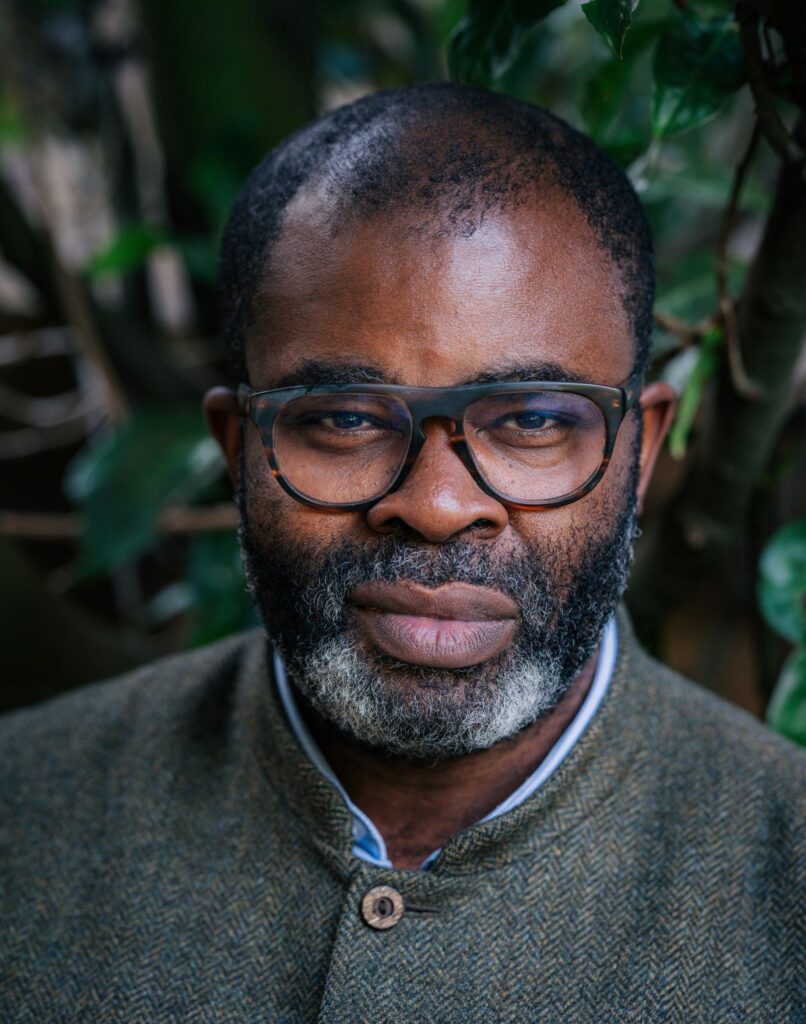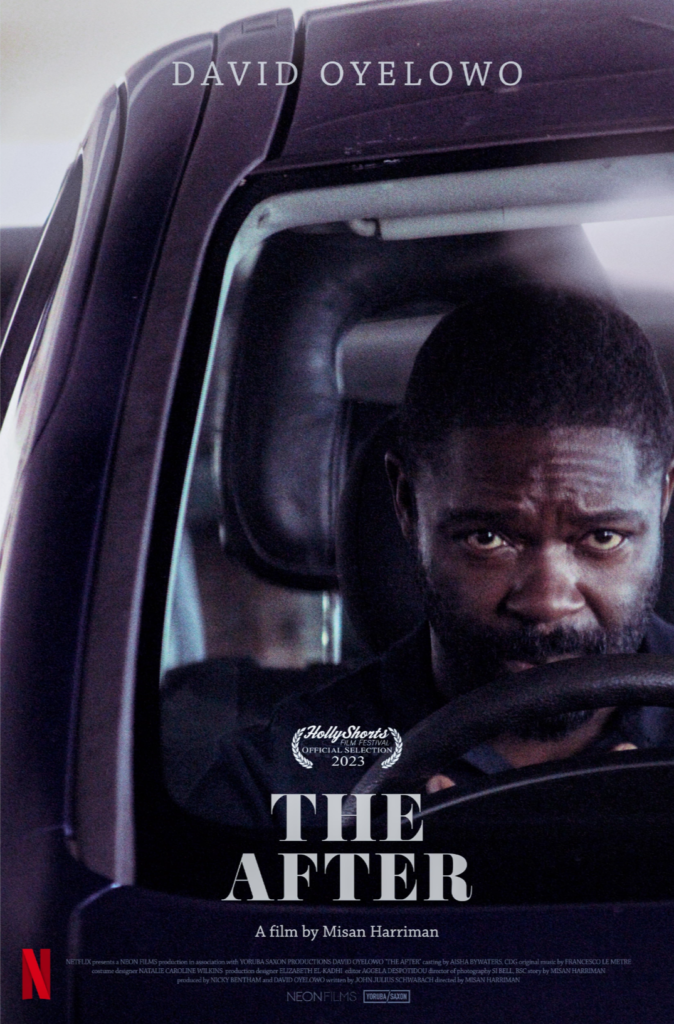British-Nigerian photographer Misan Harriman has made a name for himself as a purveyor of evocative portraits. But this autumn, the lensman is swapping his still camera for the movie camera, marking his directorial debut with the short film, THE AFTER, starring David Oyelowo as a grieving rideshare driver who finds solace through an unexpected encounter with a passenger.
THE AFTER was shortlisted in the Live Action Short Film category for the 96th Academy Awards—a category for which 187 films qualified.
I caught up with Harriman while in Paris for a family getaway amid the buzz of his film launch to delve into this shift from stills to motion.
“My life is a movie in many ways because I picked up a camera for photography just about five years ago, probably,” Harriman said. “I’m one of the most visible portrait photographers on the planet, and it’s happened in such a short period of time.”
His photography journey was serendipitous, sparked by love and nurtured by the kaleidoscopic experiences the internet offered. On his 40th birthday, his wife gifted him a camera, propelling him into a self-taught exploration of photography. The birth of his daughter further deepened his photographic exploration, as he sought to capture the fragile beauty of life through his lens.
Harriman’s ethos is rooted in the profound belief in the power of images to evoke empathy and incite change. His TED talk in April 2023, titled “The power of an image — and the mind behind it,” eloquently captures his philosophy: “This age of perceived perfection, it’s over…” He urged, “…to the parents and teachers that are looking after children with different minds, please let them know about the power and possibility of their minds.”
The world took notice of Harriman’s unique lens during the tumultuous summer of 2020. His photographs during the global protests following the death of George Floyd resonated with millions, capturing the zeitgeist of a pivotal moment in history. This recognition catapulted him onto a larger stage, leading to a historic commission by British Vogue, making Harriman the first Black man to shoot a cover for the iconic magazine.

Yet, the glitz and glamour of newfound recognition haven’t swayed Harriman from his core mission. His lens didn’t just capture images; it told stories of resilience, courage, and the indomitable spirit of hope. And THE AFTER is exemplary of these themes.
Harriman’s transition into filmmaking felt like a natural progression. “I don’t think I’d be here today if it wasn’t for film,” he said.
He reminisced about his early fascination with cinema, stating, “I kind of just fell in love with what was so good about films. Many of the eighties and nineties titles, like ‘Stand By Me’ and ‘Lost Boys’, all of that. Stanley Kubrick’s ‘Barry Lyndon’ is one of my favorite films.”
His affinity for cinema traces back to his childhood days at a “draconian boarding school in the early eighties in the countryside of England, a setting far removed from my home in Nigeria. It was like Harry Potter minus the whimsy,” he said. There, movies served as his escape during a “tricky time” as one of the few students of color in a pre-internet, pre-inclusion era.
Decades after those formative years, his present-day journey blends art, social activism, and an enduring quest for expression. “50% of what I do is civil rights work,” he shared, further elaborating on his role as a global ambassador for Save the Children, the 100-year-old international, non-government-operated children’s charity organization.
Harriman’s eventual plunge was nudged by industry stalwarts. “I got to shoot so many of my idols. I shot Liam Neeson. He was one of the first people to say, you should think about films. And then I shot Steve McQueen, he said the same thing to me,” he recounted.
The inception of THE AFTER came to fruition with an unsolicited social media message to David Oyelowo, whose work Harriman had long admired. “I just DMed him saying, dude, I’m a huge fan. And he was already a fan of my photography,” Harriman revealed. The mutual admiration blossomed into a collaborative journey that not only marked Harriman’s directorial debut but brought a poignant narrative to the screen.
It’s an evocative short film that explores the nuanced realms of grief and redemption through the lens of a rideshare driver navigating the complications of loss.
“The narrative of THE AFTER is so close to my heart,” Harriman said. “David’s portrayal is raw, real. When he picks up that one unique passenger, the ensuing dialogue, the shared silence, and the nuanced emotions, they all stitch together a narrative that’s as healing as it is heart-wrenching.”
THE AFTER mirrors the filmmaker’s contemplation on life and the human condition, particularly in the turbulent currents of the modern era. “I went through my own mental health crisis, like many of us during lockdown, and I think we’ve all had this moment of deep reflection,” he observed.

Through a transient yet transformative interaction, THE AFTER’s narrative delves into the healing power of human connection, the courage in confronting one’s past, and the unexpected avenues where solace and self-discovery can be found.
Oyelowo’s driver’s journey is a delicate exploration of grief, acceptance, and the potential for personal growth. It encourages audiences to contemplate the profound impact of fleeting encounters and the imprint of past experiences on one’s journey toward healing and self-acceptance.
Most importantly for Harriman, the film offers a sliver of hope, a nod to the collective human condition in the quest for elusive answers in the face of adversities.
Discussing the camaraderie and shared vision among the cast (Jessica Plummer and Amelie Dokubo co-star alongside Oyelowo), and crew (John Julius Schwabach co-wrote the script; casting was handled by Aisha Bywaters; Si Bell shot the film), Harriman noted, “It was a waltz of creativity, knowing when you have the emotion from an acting giant and hoping that guides a narrative arc.”
The journey of THE AFTER has ignited encouraging responses from the industry, even sparking some Oscar buzz. “I almost fell off my chair two days ago when Variety did the Oscar predictions, and they put this film as one of the five,” Harriman shared.
And with scripts already piling up, it’s clear that he’s on the cusp of a new chapter in his creative journey. “I’m very fortunate to have people wanting me to read things, and I’m talking with a lot of writers about stories that are in my head,” he shared.
He might be navigating new terrain, but Harriman remains grounded in his identity as a Nigerian British man, cherishing the “best of both of those very complicated cultures,” he said, adding, “I’m very unapologetic about colonial history, the history of my own country. I keep it very real about that.” This consciousness extends beyond his heritage, delving into broader socio-political dynamics.
As he looks toward the future, he cherishes the storytelling medium, both through the lens and on the screen, as a mechanism through which the human condition can be explored. “Whether it’s a still or moving image, they are fundamental to my existence for the rest of my natural life,” Harriman said. “So I’ll always shoot images. But I feel that being a filmmaker is a big part of why I’ve been brought onto this planet, and I hope I’ll have the opportunity to tell as many stories as I’m able to.”
THE AFTER is now streaming on Netflix.
